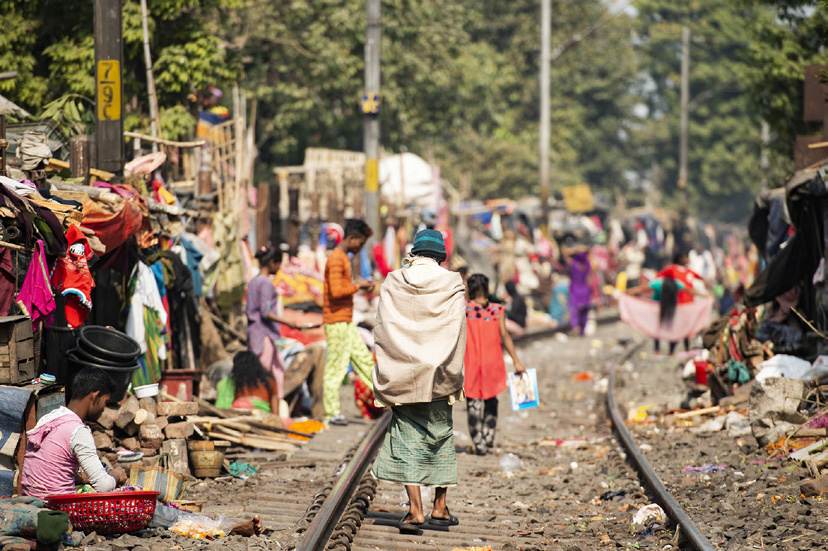Habiba Djebbari, researcher in economics at AMSE, offers a perspective on the 2019 Nobel Prize in economics awarded for experimental research that assesses development policy to fight poverty.
The Royal Swedish Academy of Sciences has awarded the Sveriges Riksbank Prize in Economic Sciences in Memory of Alfred Nobel 2019 to Abhijit Banerjee, Esther Duflo (MIT) and Michael Kremer (Harvard) "for their experimental approach to alleviating global poverty". This choice is welcomed as it acknowledges that economics, as a research discipline, should also channel its efforts towards assessing development policy and finding new ways to fight poverty. This recognition was preceded by that of James J. Heckman (Nobel 2000) on the evaluation of public policy and of Angus Deaton (Nobel 2015) and Amartya Sen (Nobel 1998) on the economics of poverty.
The Academy recognizes the researchers' impact on "our ability to fight global poverty in practice". Their achievement involves a continuous stream of carefully crafted research questions based on a detailed knowledge of existing constraints on the field, often combined with tailored data collection and sound empirics. An outstanding example is the work of Michael Kremer and Ted Miguel on the free delivery of deworming drugs in schools in Kenya. They found considerable improvements in pupils health; as healthier children went to school, the program also led to increased school attendance - it actually turned out to be the most cost-effective way of doing so! The study's influence outside academic circles is also significant and can be attributed to the researchers'constantly seeking to disseminate their findings through various media, a testimony to their desire to have an impact outside the academic world. Yet criticisms abound, usually directed at the experimental approach itself, its dominant place in the field, its inherent limits, including the scope of the questions it addresses.

"Experimental research methods now entirely dominate development economics" (Nobel Prize press excerpt)
What the Nobel committee seems to see as positive, others experience with frustration. Frustration seems to stem from two main concerns. One is that this (or any) approach is dominating research. Obviously, there is no gold standard way of approaching questions, and some of the laureates' most influential research falls outside this experimental paradigm. That most of this research is produced in top US universities is another concern as it may be incompatible with the aim of "finding the best ways to fight global poverty". Good local institutional knowledge, often obtained through long-term relationships with policymakers in poor countries, is needed to define the most policy-relevant questions, be heard by decision-makers and hope to influence policymaking. Therefore researchers based in poor countries should have a greater role in that respect. But funds and trained human resources are scarce. Developing countries' researchers are often not organized as a profession (e.g., the Econometrics Society in Africa is the first region-wide organization to hold regular meetings in any field of economics in Africa). To their credit, Banerjee, Duflo and Kremer do collaborate with scholars from developing countries, an example which should be followed by a greater number of researchers conducting RCTs.
"Their new experiment-based approach has transformed development economics" (Nobel Prize press excerpt)
The merits of experimental research have given rise to a heated debate in the fields of development economics and econometrics. Three questions are typically discussed, namely internal validity (how reliable are findings drawn from experimental research?), external validity (how generalizable are the findings obtained from a particular study?) and research scope (what can be studied?)
First, many of the inherent limits of the approach (e.g., those related to heterogeneity in impacts, market and social interactions) lead to exciting new research when combined with structural modelling and machine-learning methods. Second, the point of (lab-in-the-field and) field experiments is to shed light on the mechanisms at play and help design sound policy. But we also need large-scale social experiments to assess the effectiveness of programs in the contexts in which these are taking place. Finally, Banerjee and Duflo (2012) question existing paradigms (including the rationality of the poor), enriching our understanding of the lives of the poor. They show that small changes can have big effects. The long-term effects of deworming is a good illustration: the beneficiaries, once adults, moved out of subsistence farming to non-farm employment (including manufacturing jobs), and the gender gap in education decreased by a factor of two. A small pill can go a long way towards improving the lives of the poor.
Abhijit Banerjee, Esther Duflo and Michael Kremer decided to donate their prize to future generations of graduate students in development economics, a promise that the fight against poverty will go on.
References
- Poor Economics: A Radical Rethinking of the Way to Fight Global Poverty, by Abhijit Banerjee and Esther Duflo, Public Affairs 2011.
- Miguel, E. and Kremer, M. (2004), Worms: Identifying Impacts on Education and Health in the Presence of Treatment Externalities. Econometrica, 72: 159-217.
Article written by Habiba Djebbari.
Originally published in the 10th AMSE Newsletter in December 2019.






